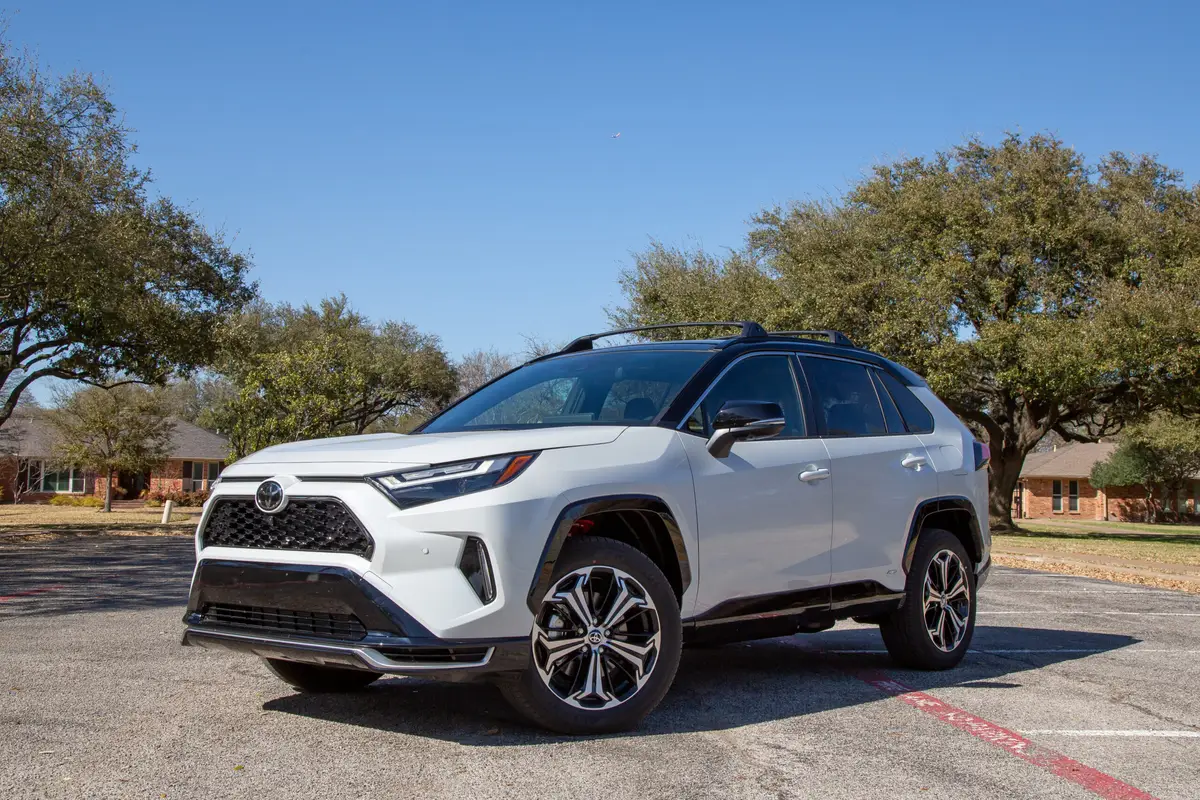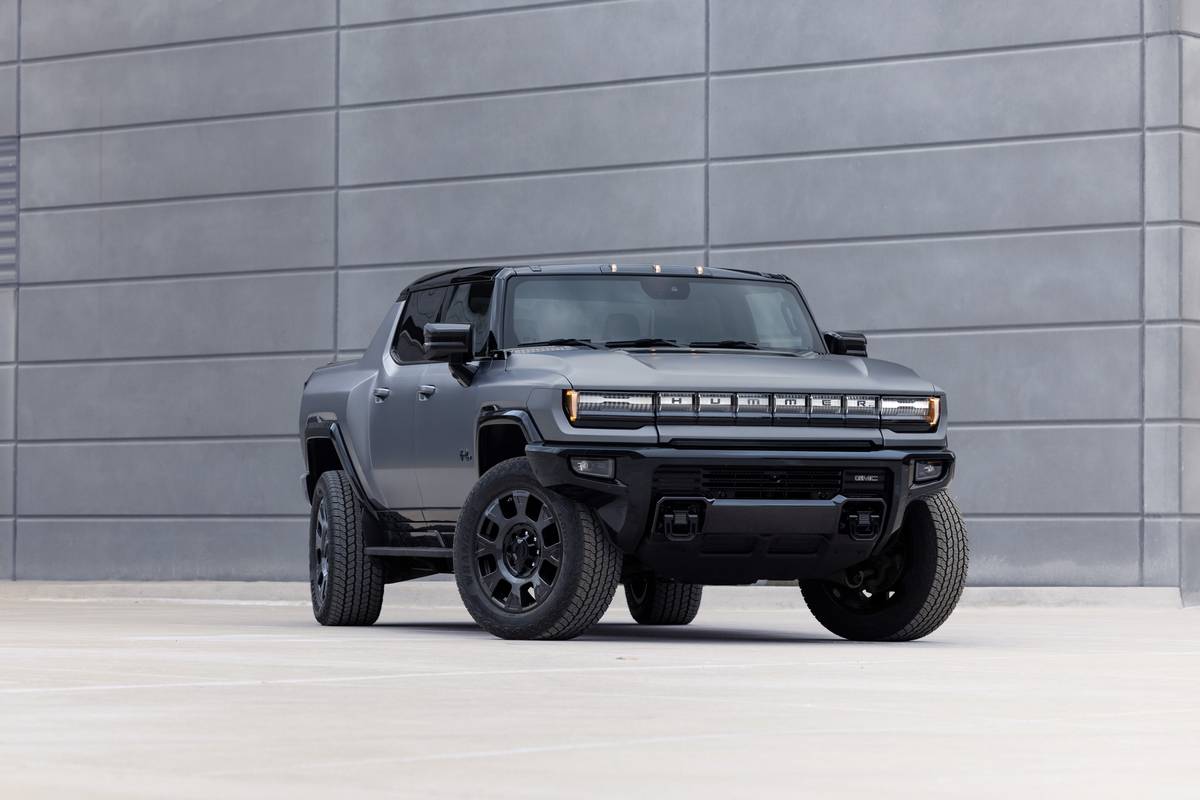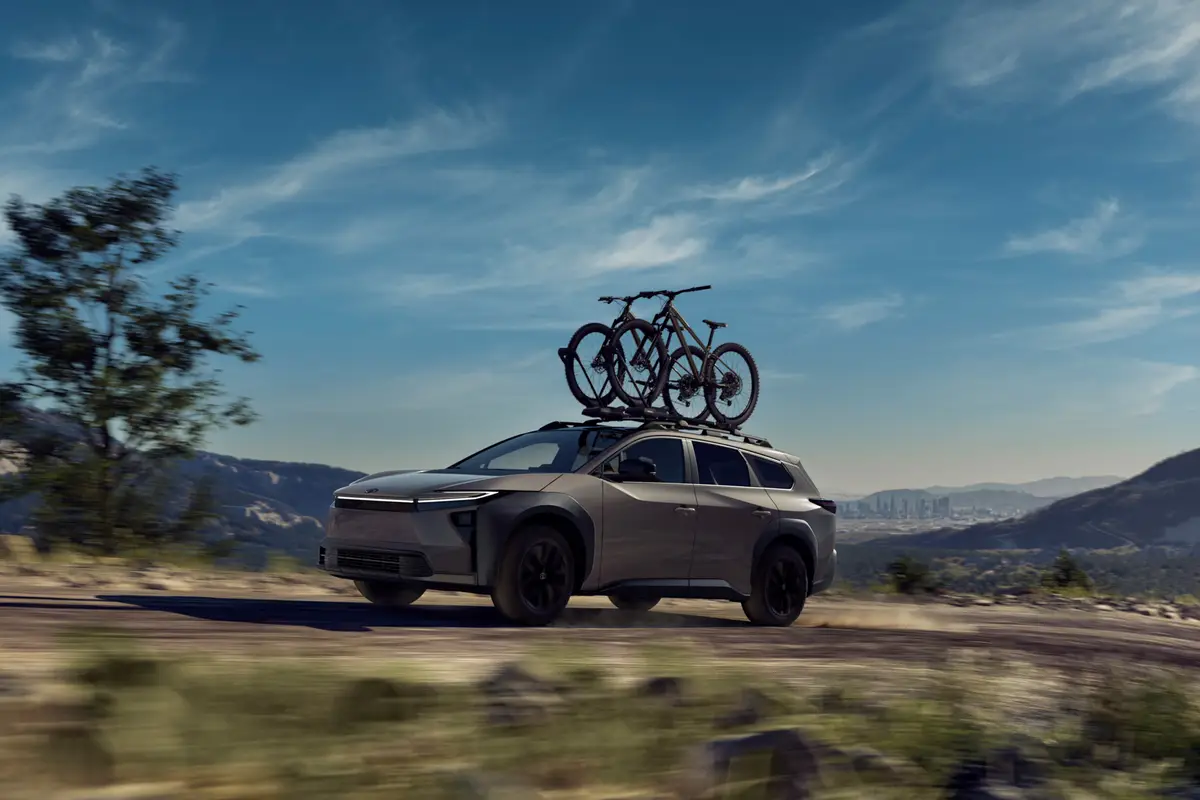2025 Mazda CX-30 Review: Pushing Toward Premium

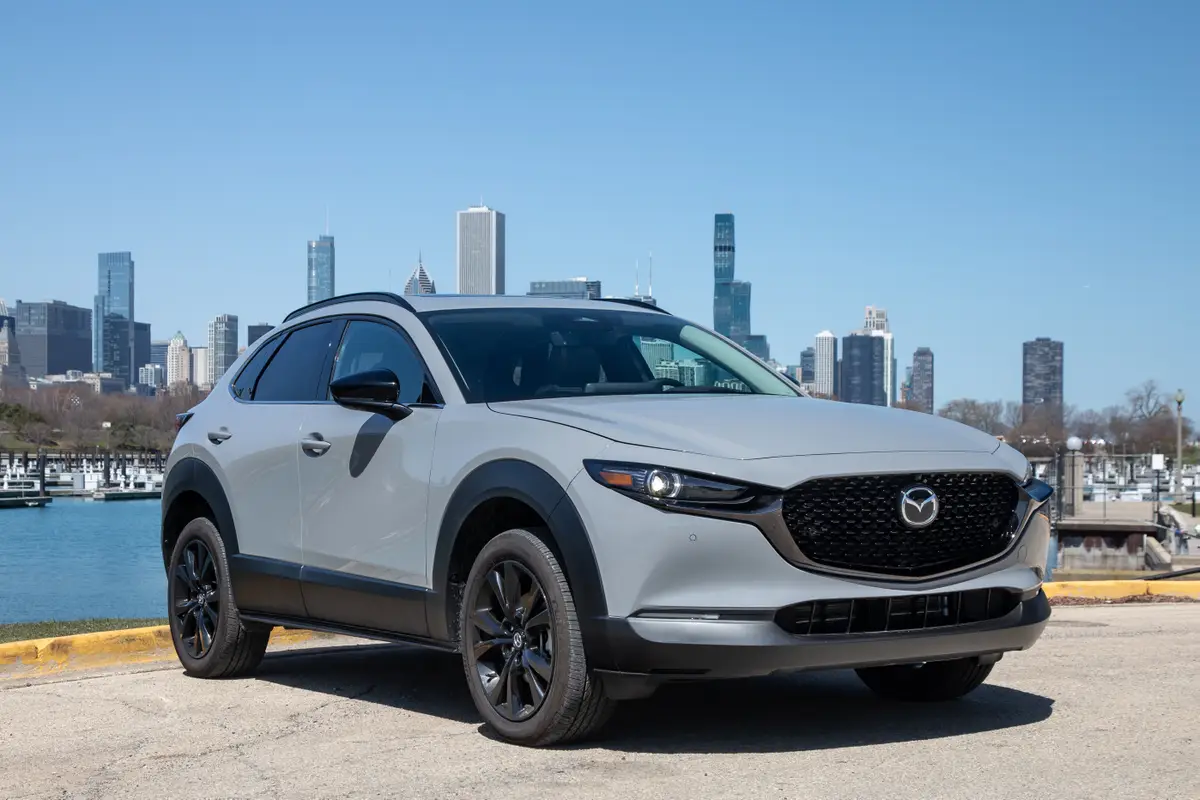
Is the Mazda CX-30 a Good SUV?
- If quick acceleration, athletic handling and an upscale interior are more important to you than generous backseat and cargo space — and you’re willing to pay a bit extra for those traits — the 2025 Mazda CX-30 is a standout subcompact SUV you should consider.
How Does the Mazda CX-30 Compare With Other Subcompact SUVs?
- Mazda’s recent effort to push the brand upmarket means the CX-30 straddles the line between mainstream and luxury marques — particularly the top-of-the-line 2.5 Turbo Premium Plus trim. Turbocharged versions of the Hyundai Kona and Kia Seltos are appropriate rivals of the base-engine CX-30, while the turbocharged Mazda compares favorably with the Audi Q3, BMW X1, Mercedes-Benz GLA and Mini Countryman S — even without the same brand prestige those rivals have.
What Is the Mazda CX-30?
The CX-30 is Mazda’s smallest and most affordable SUV; it slots beneath the compact CX-5 and CX-50 in Mazda’s lineup. The CX-30 hasn’t changed a lot since its debut for the 2020 model year; the biggest update so far has been an available turbocharged 2.5-liter four-cylinder engine that arrived for 2021, joining the normally aspirated 2.5-liter four-cylinder that comes standard. For 2025, the CX-30 gets available Alexa Built-In voice control and online navigation with live traffic data and over-the-air updates, as well as a new available extra-cost paint color called Aero Gray Metallic.
Related: 2025 Mazda CX-30: Alexa Built-In Now Available, Priced From $26,415

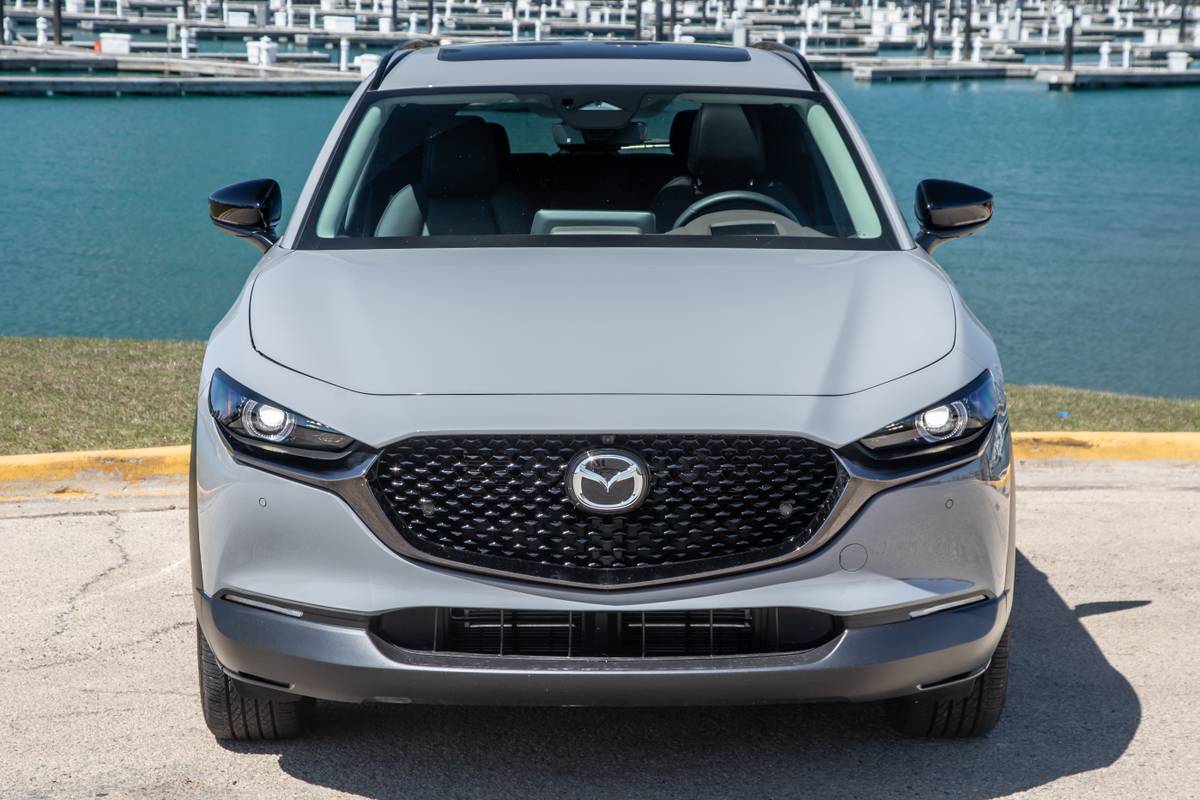

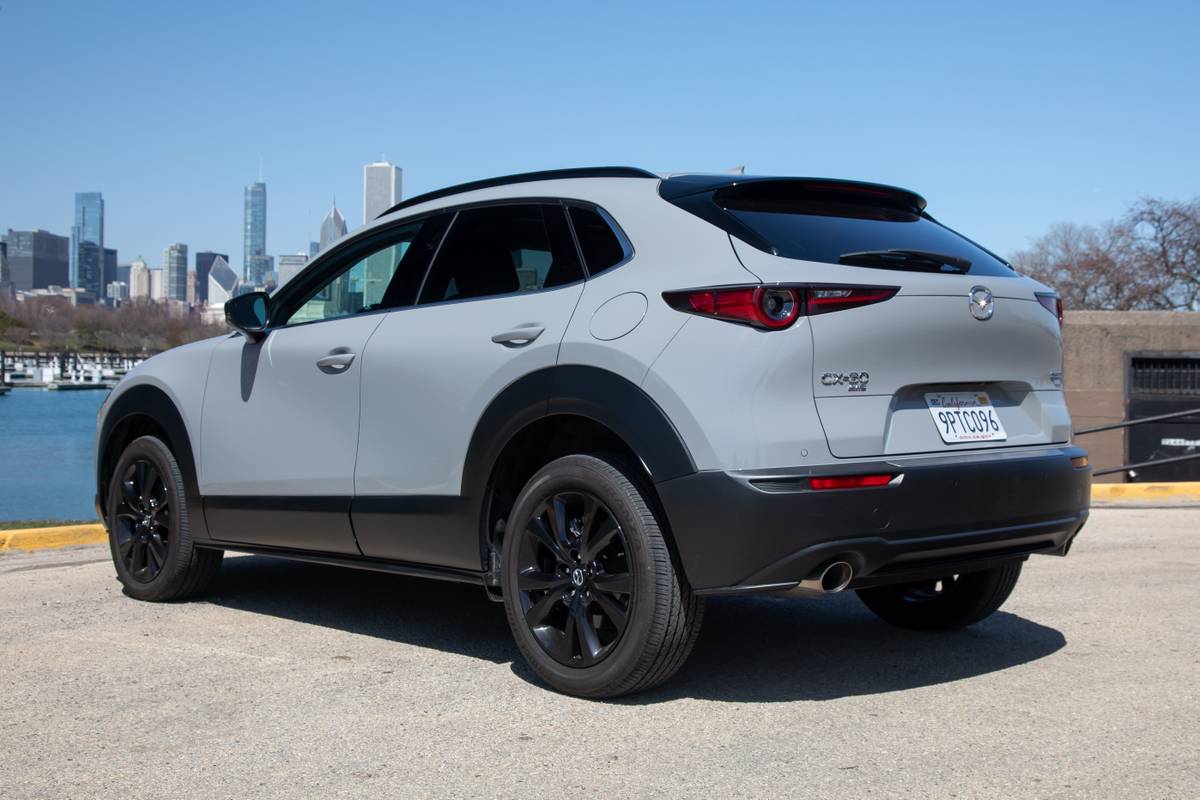
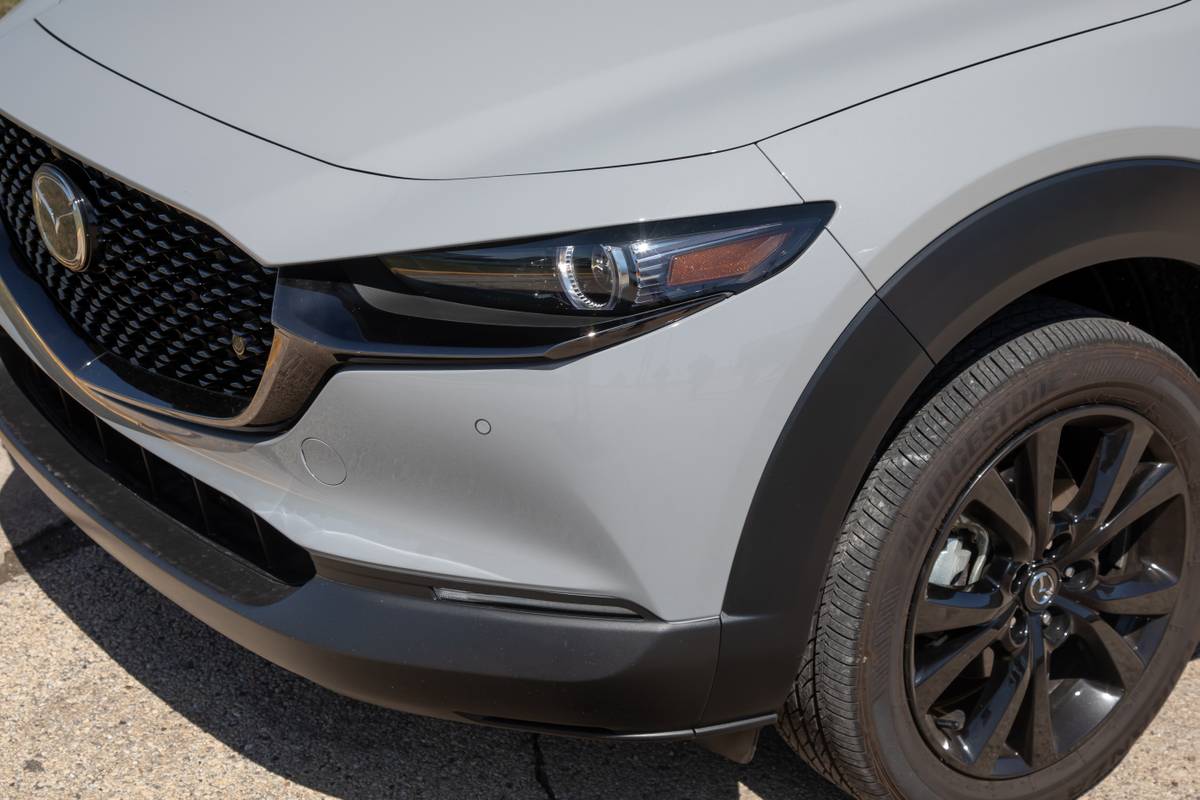

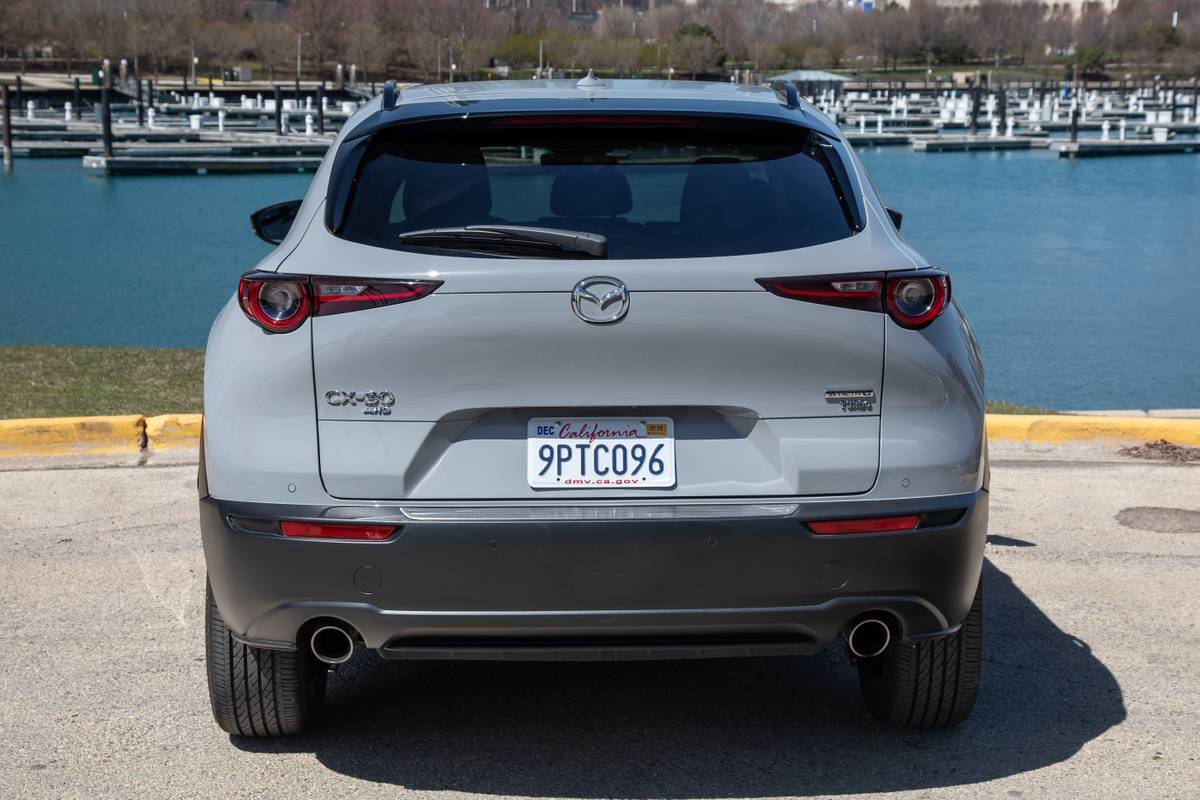
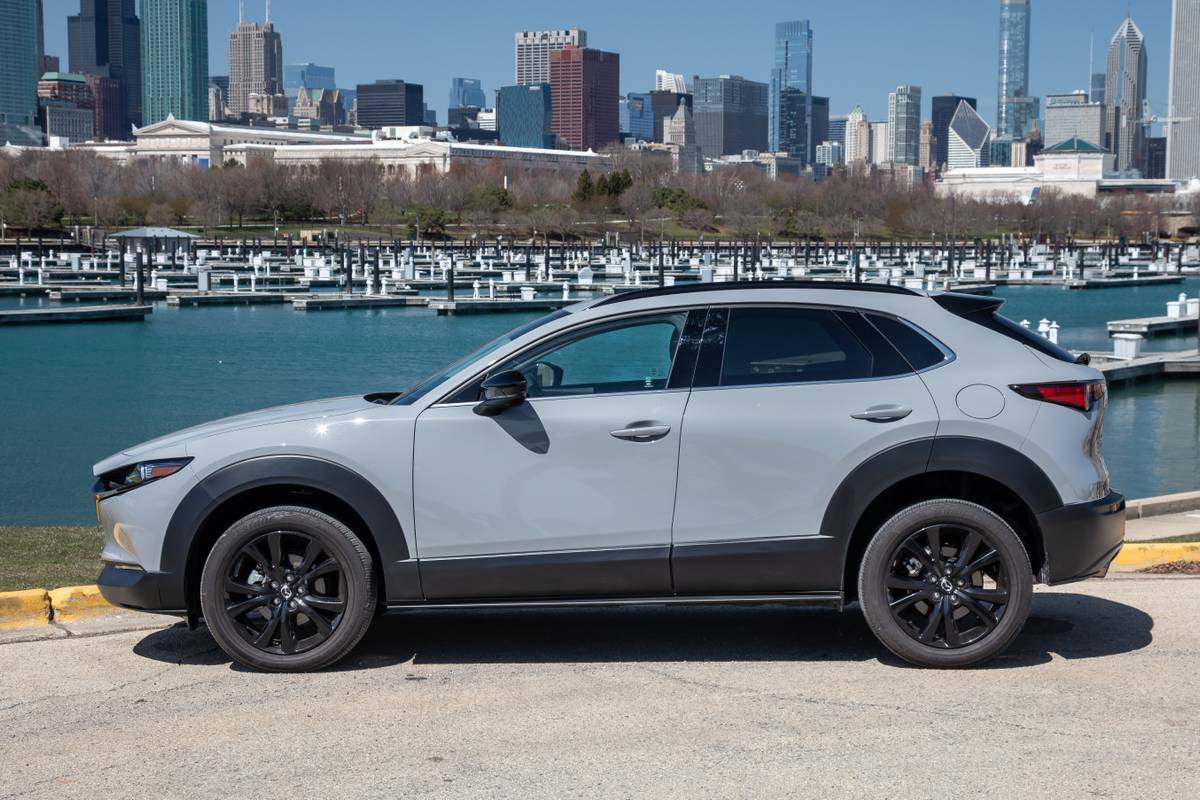
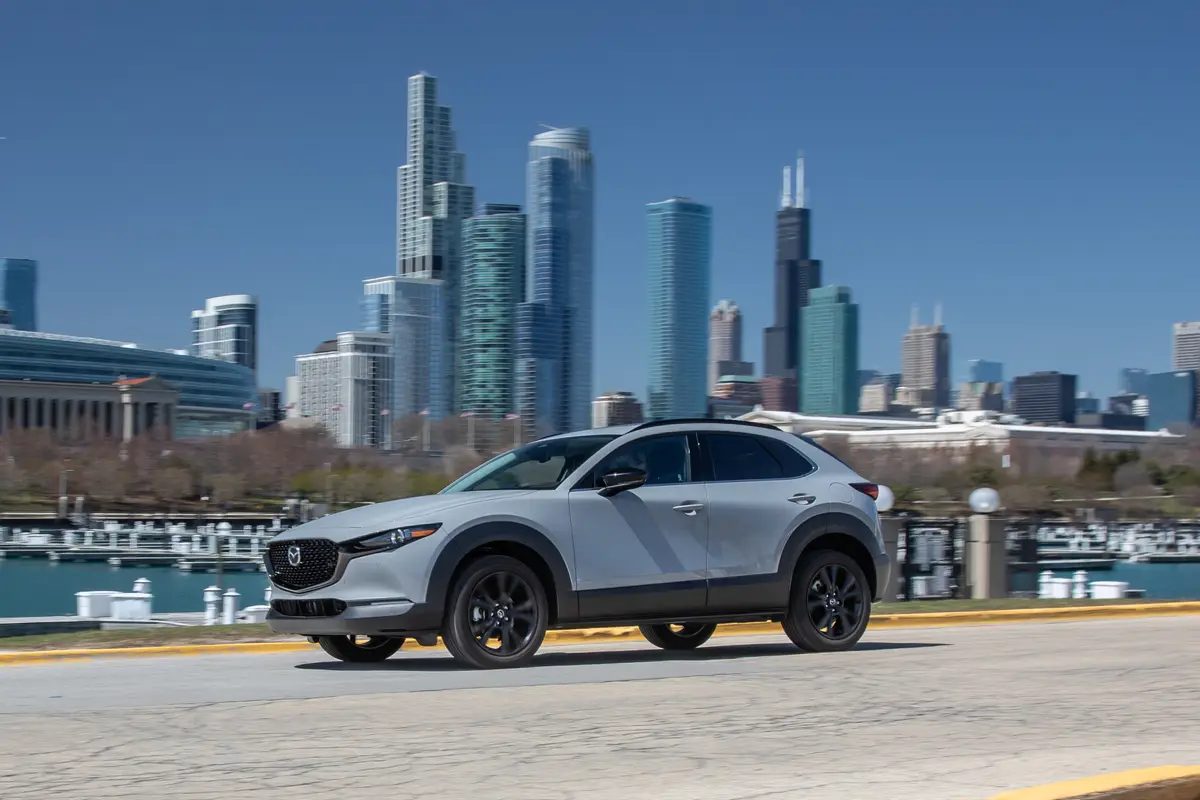









All-wheel drive is standard on every CX-30. The base engine makes a respectable 191 horsepower, while the turbo version increases output to 227 hp when running on regular gas and 250 hp on 93-octane premium fuel. The turbo engine’s numbers handily top every mainstream-brand subcompact SUV, but turbo versions of the Hyundai Kona and Kia Seltos are on par with the base CX-30’s output, as is the new-for-2025, near-luxury Acura ADX.
At least on the horsepower front, the turbo CX-30’s closest competitors are entry-level versions of European luxury subcompact SUVs, all of which are powered by turbocharged 2.0-liter four-cylinder engines: the Audi Q3 (228 hp), BMW X1 xDrive28i (241 hp), Mercedes-Benz GLA250 (221 hp), Mini Countryman S (also 241 hp, as the Countryman shares its platform and engines with the X1) and Volvo XC40 (247 hp).
Related Video:
How Does the Mazda CX-30 Drive?
We drove a CX-30 2.5 Turbo Premium Plus on premium gas, and it feels as gutsy as its horsepower rating implies. The engine delivers linear power with minimal turbo lag — briskly getting up to speed on freeway on-ramps or zipping forward to an opening in traffic feels smooth and relatively effortless. The CX-30’s lone transmission is a six-speed automatic, which is a bit behind the times; seven-, eight- and nine-speed automatics are the norm these days. Even so, Mazda’s gearbox is just fine, matching nicely with the engine to deliver crisp, timely shifts.
In addition to that healthy horsepower rating, the rest of the CX-30’s driving personality is athletic, too. The steering feel is wonderfully responsive and communicative while still effectively filtering out harshness from rough pavement and other road imperfections. Likewise, the suspension strikes an excellent balance between cornering prowess and ride quality. Among the current crop of mainstream-brand subcompact SUVs, the turbo CX-30 is the most agile and fun to drive, and its handling compares favorably to those European luxury-brand SUVs.
How Nice Is the Mazda CX-30’s Interior?
In Premium Plus trim, the CX-30’s cabin ambiance is a step above its mainstream rivals. Supple leather upholstery and high-quality materials provide a convincingly luxurious feel, as do standard features like a head-up display, 360-degree camera system and excellent Bose premium audio system.
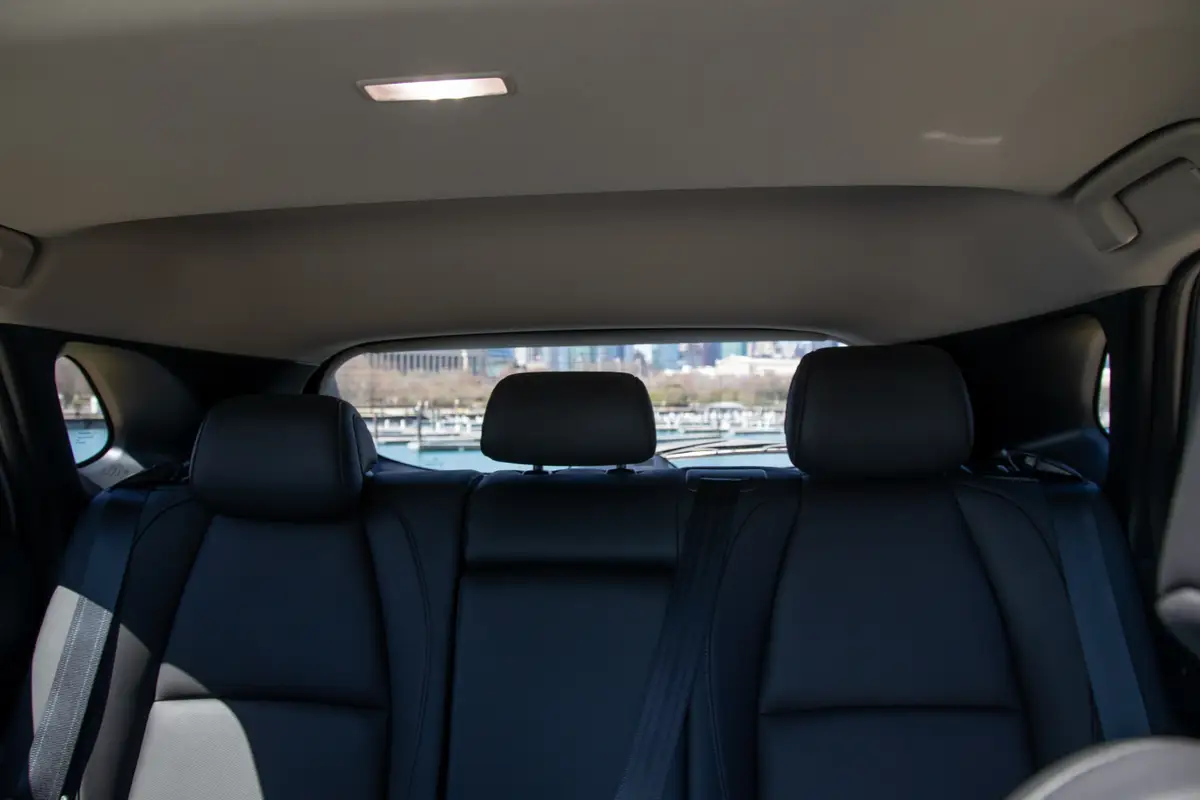
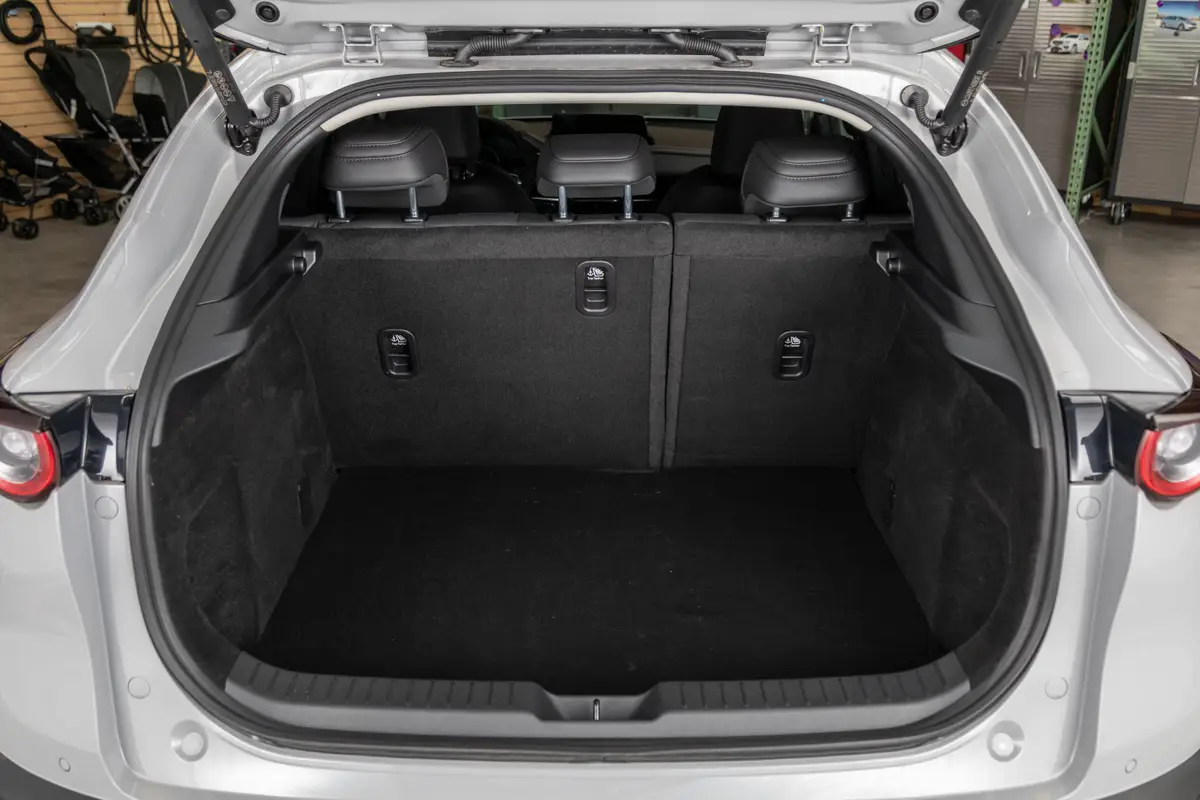
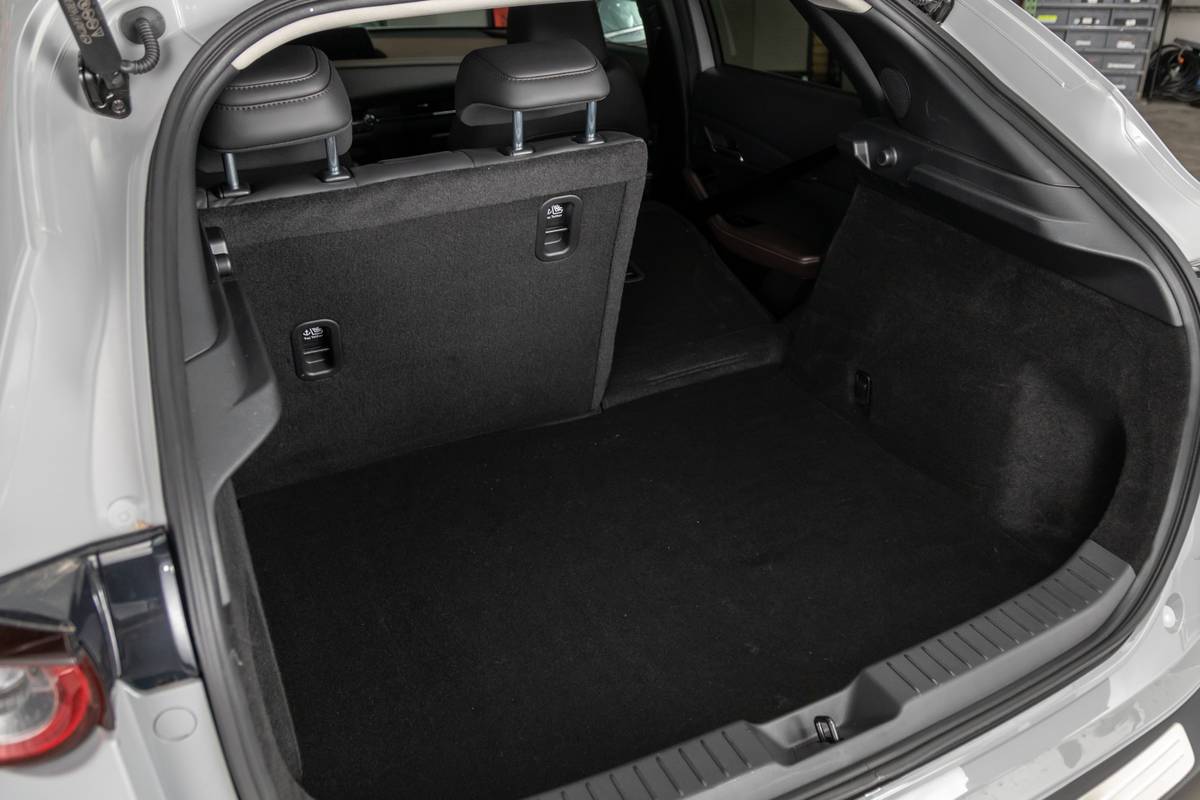
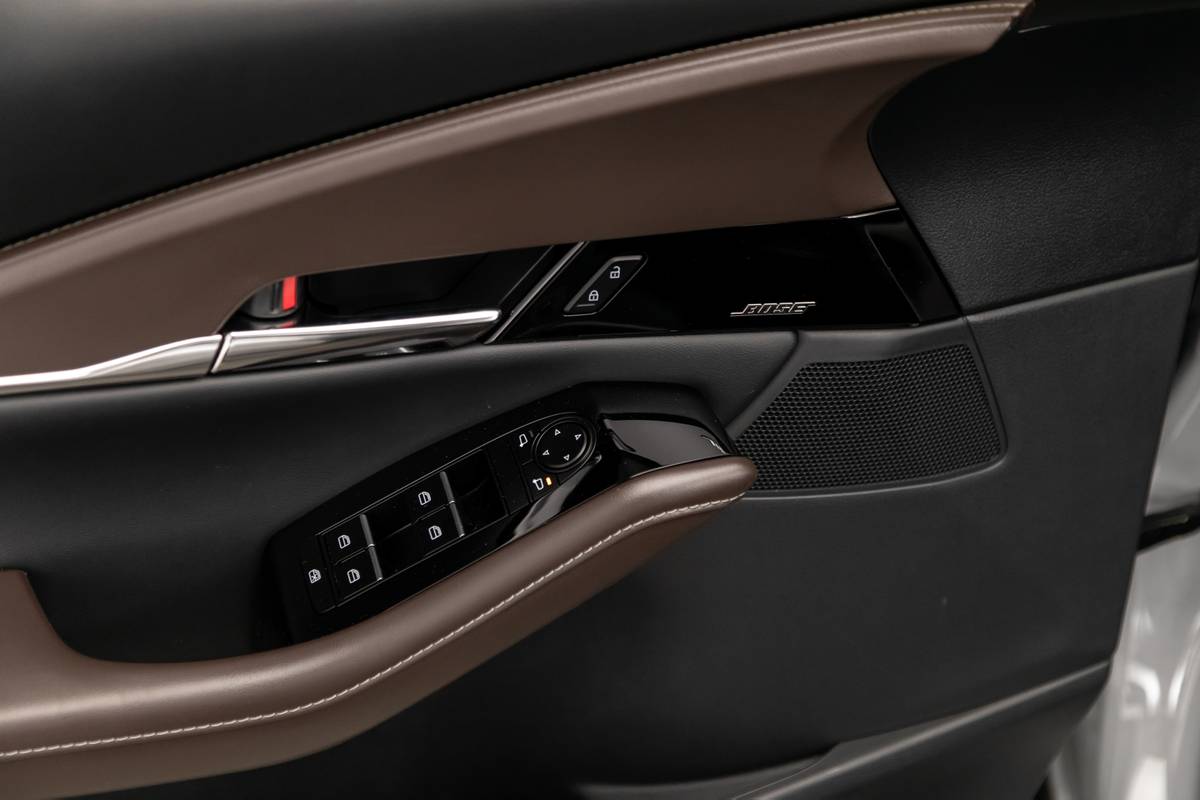
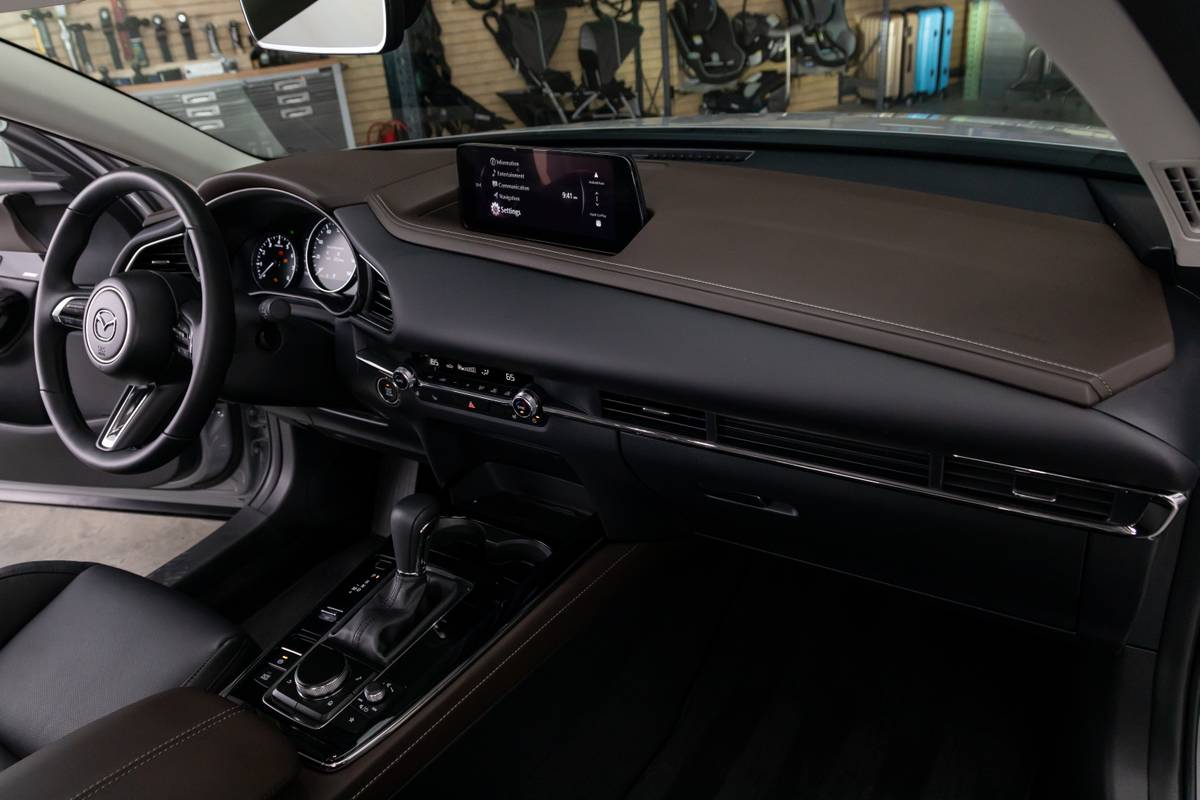
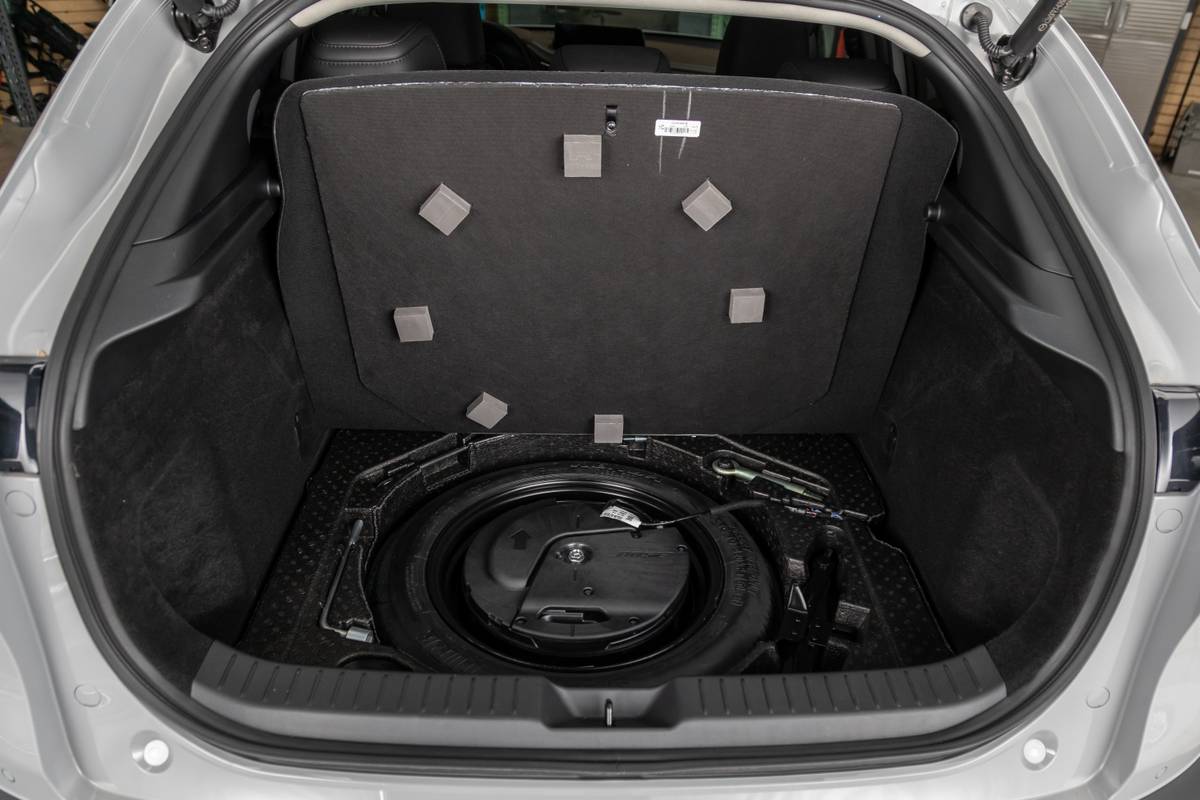
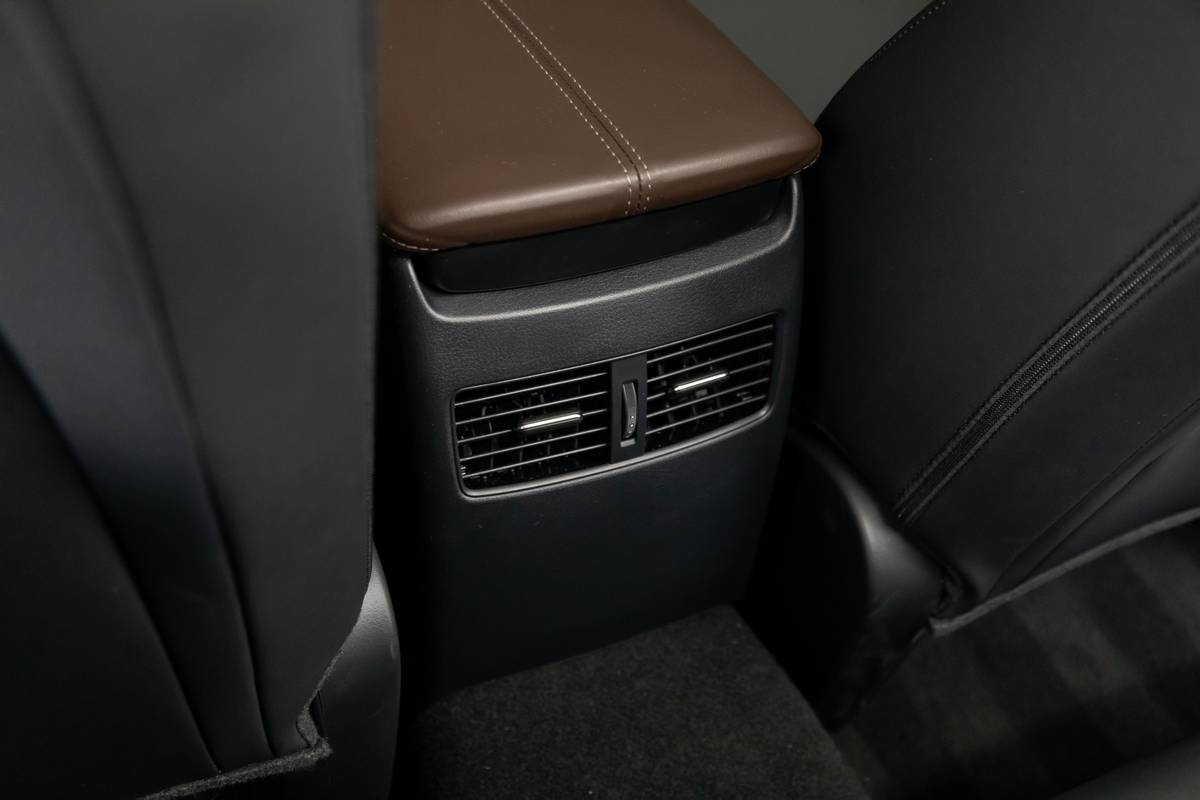
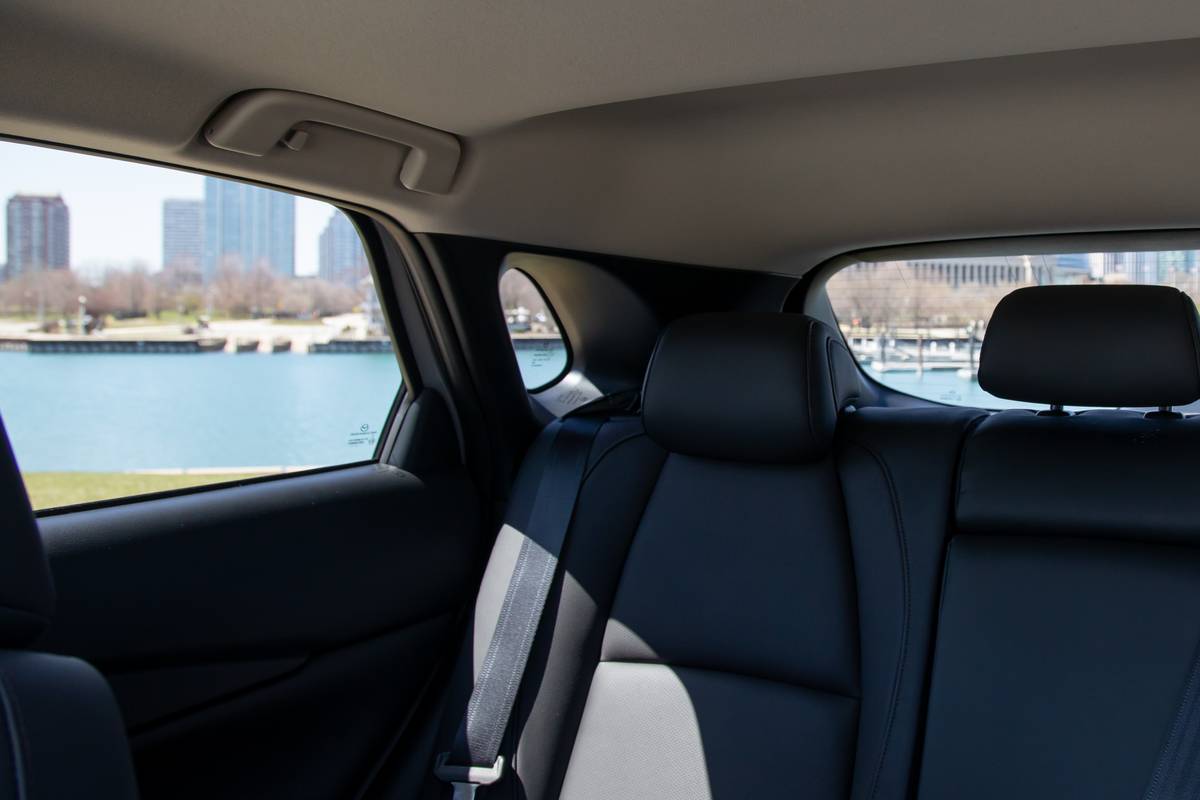
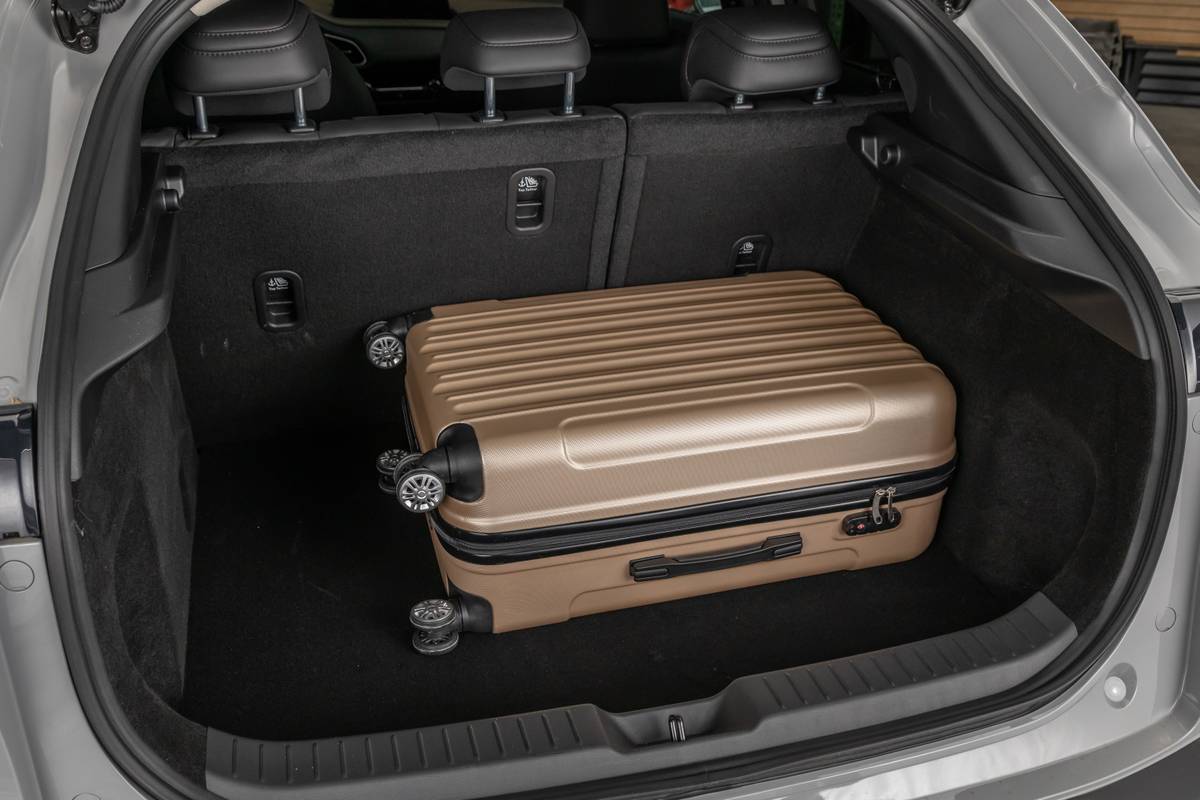
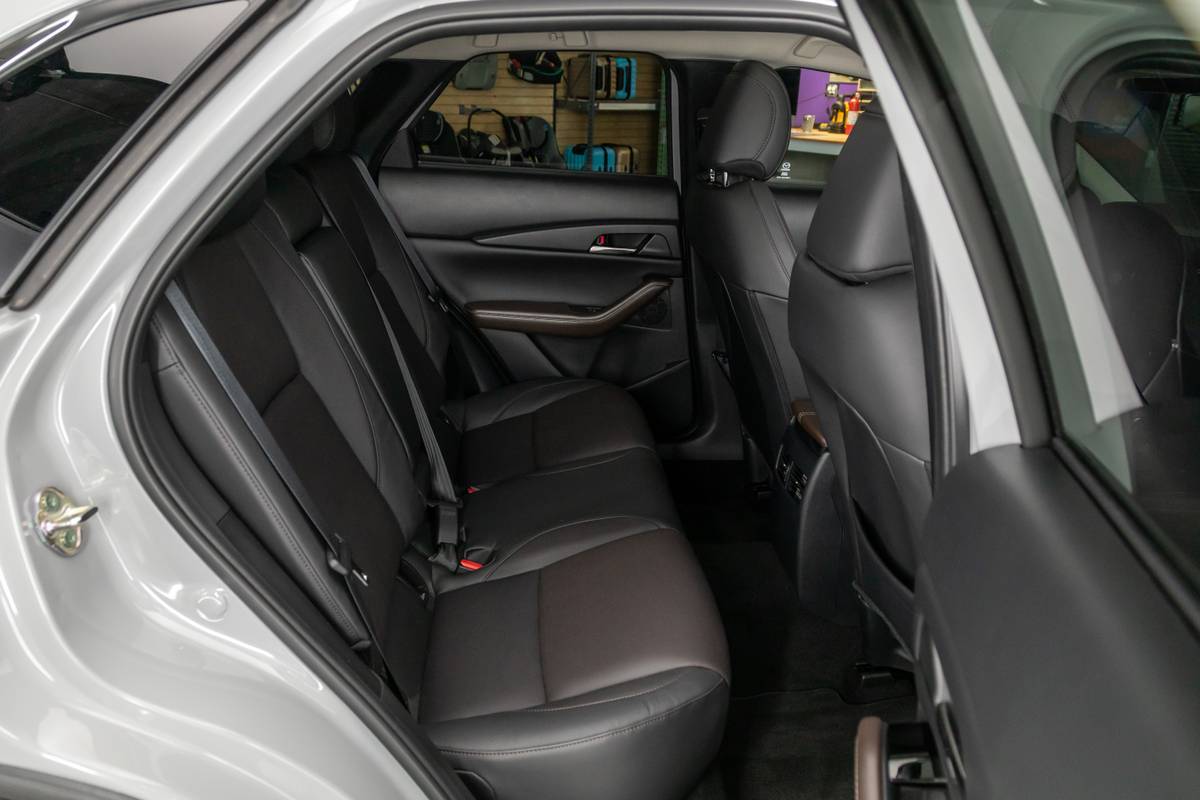












The interior space, on the other hand, isn’t very generous. Though the CX-30’s sleek, bobtail body shape looks sporty, it’s not optimal for cargo capacity — and that low roofline and sloped rear window also mean rear visibility isn’t very good. The cabin is cozy for people, too. Backseat space is tight to start with, and legroom gets truly cramped when the front seats are adjusted more than halfway back.
I also have a specific tall-guy pet peeve. I’m 6 feet, 6 inches tall, so I need to have the front seats set all the way back in order to fit — and with the front seats in that position, the rear seatbacks can’t fold because they hit the front seatbacks. That means I have to perform the tedious task of moving the front seats up and back again every time I need to fold the rear seats to open up the CX-30’s maximum cargo space.
You can compare the CX-30’s cargo area with other small SUVs by checking our list of vehicle cargo measurements from our own independent testing. Spoiler alert: It’s toward the bottom of the list. Several subcompact SUVs offer more space for both people and cargo.
More From Cars.com:
- 2025 Mazda CX-5 Review: Pace Over Space
- 2025 Mazda CX-50 Hybrid Review: A Bit More Efficient, a Lot Less Fun
- What’s the Best Compact SUV for 2025?
- Research Mazda Vehicles
- Shop for a 2025 Mazda CX-30 Near You
How Is the Mazda CX-30’s Technology?
The CX-30 shares its infotainment interface with the rest of Mazda’s lineup, and our editors are not fans of the system. It uses a console-mounted control knob and buttons, which we find more distracting and tedious to use than a typical touchscreen-based system. The CX-30’s available 10.25-inch display does have touchscreen functionality, but strangely only when Apple CarPlay or Android Auto is being used — and the touchscreen is placed so far from the driver, it’s not easy to reach.
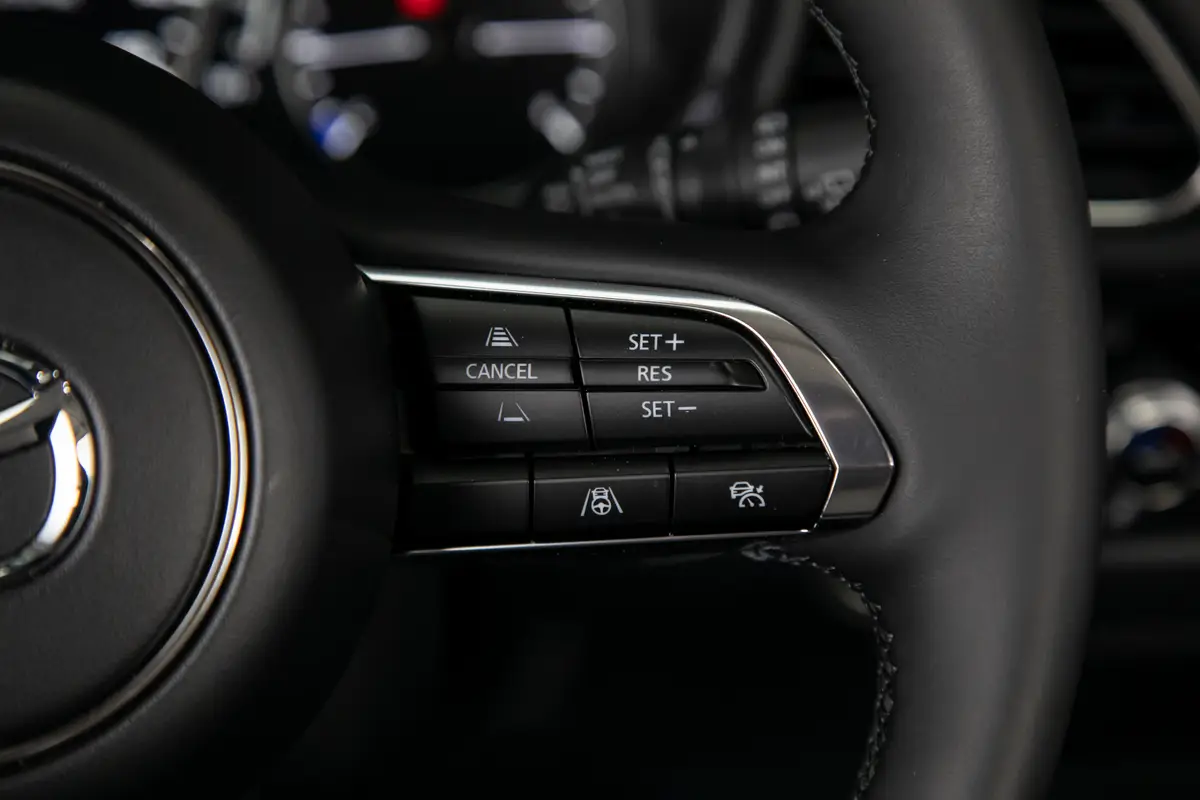
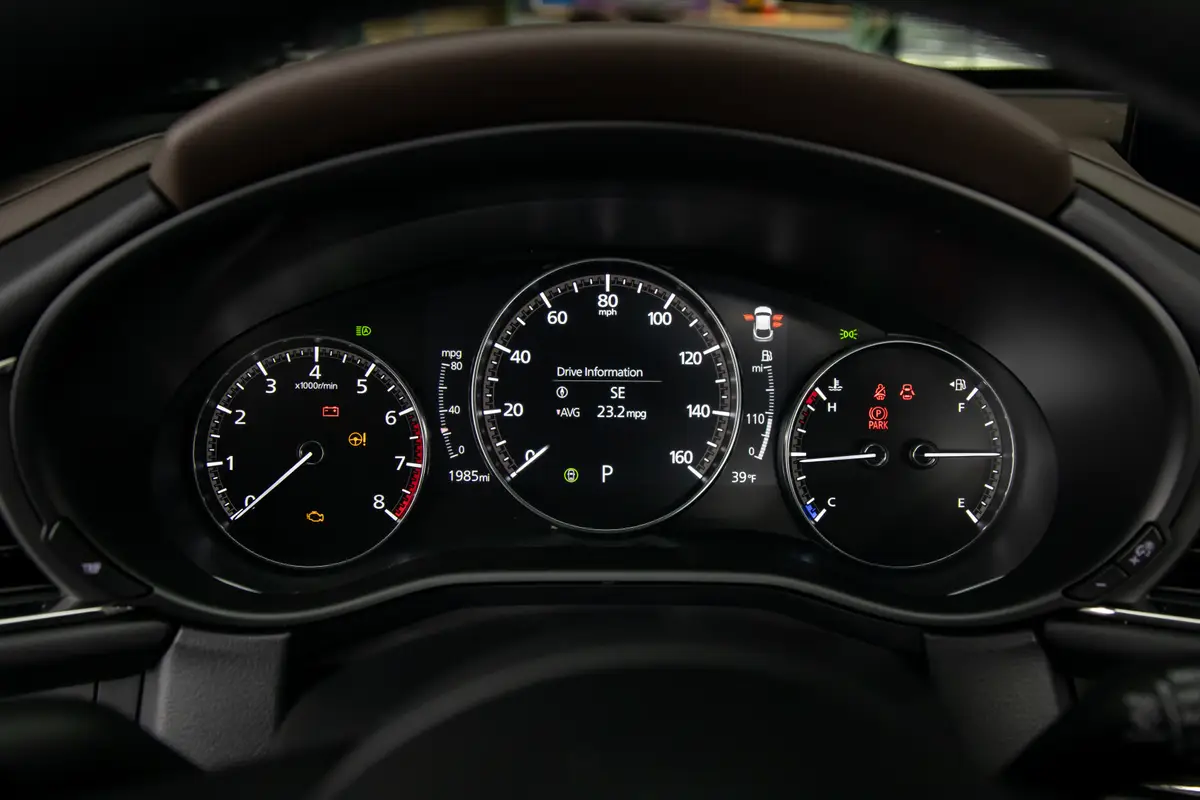



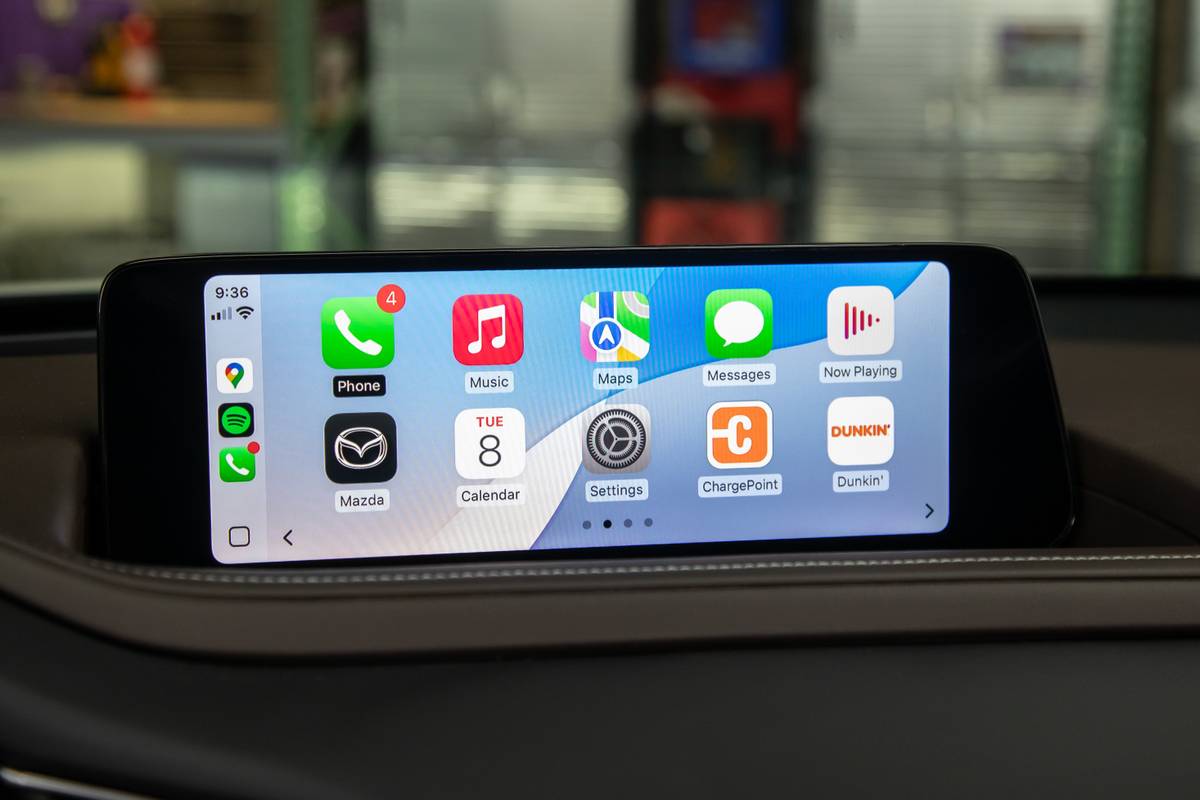


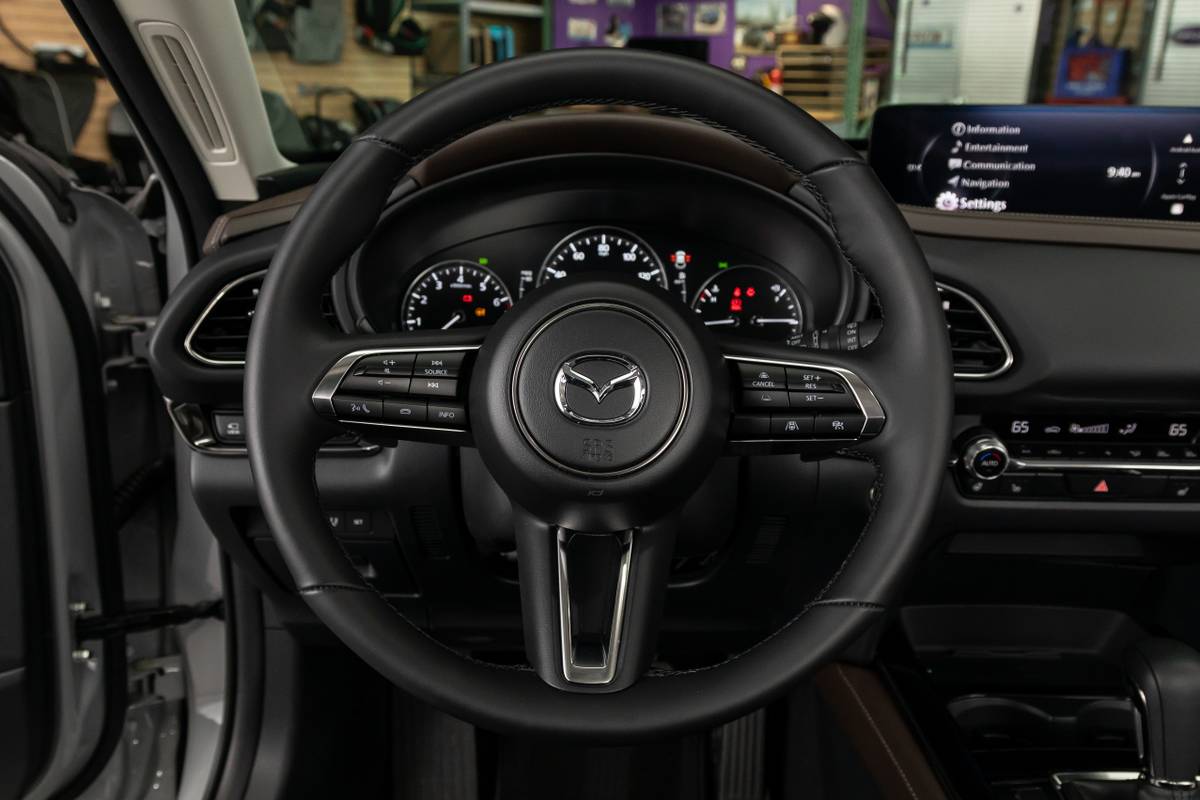

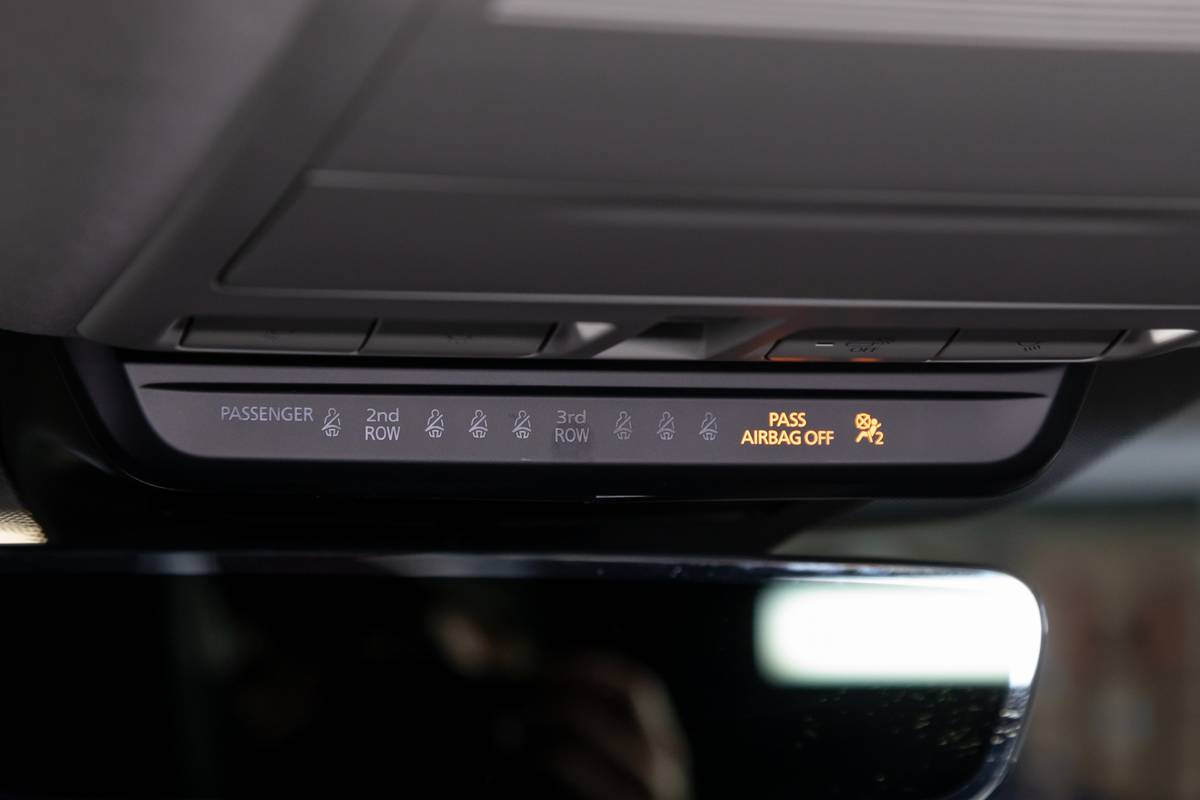
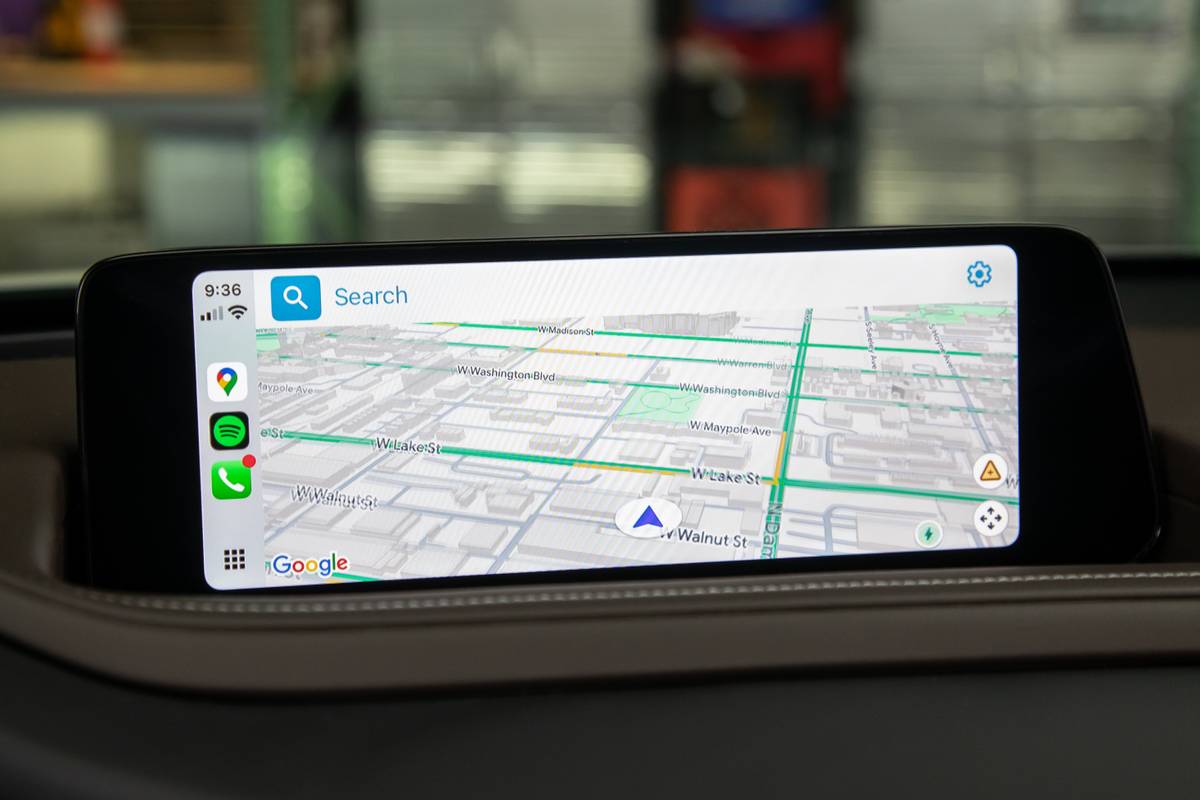
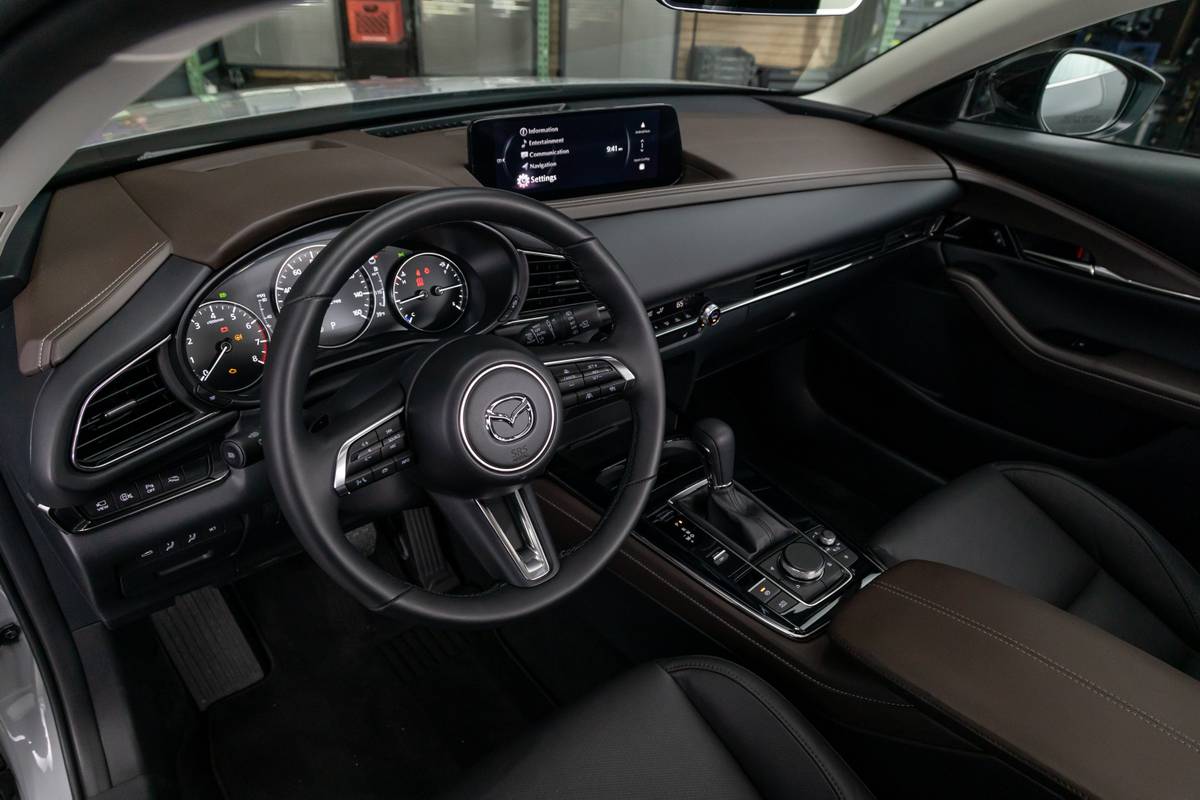
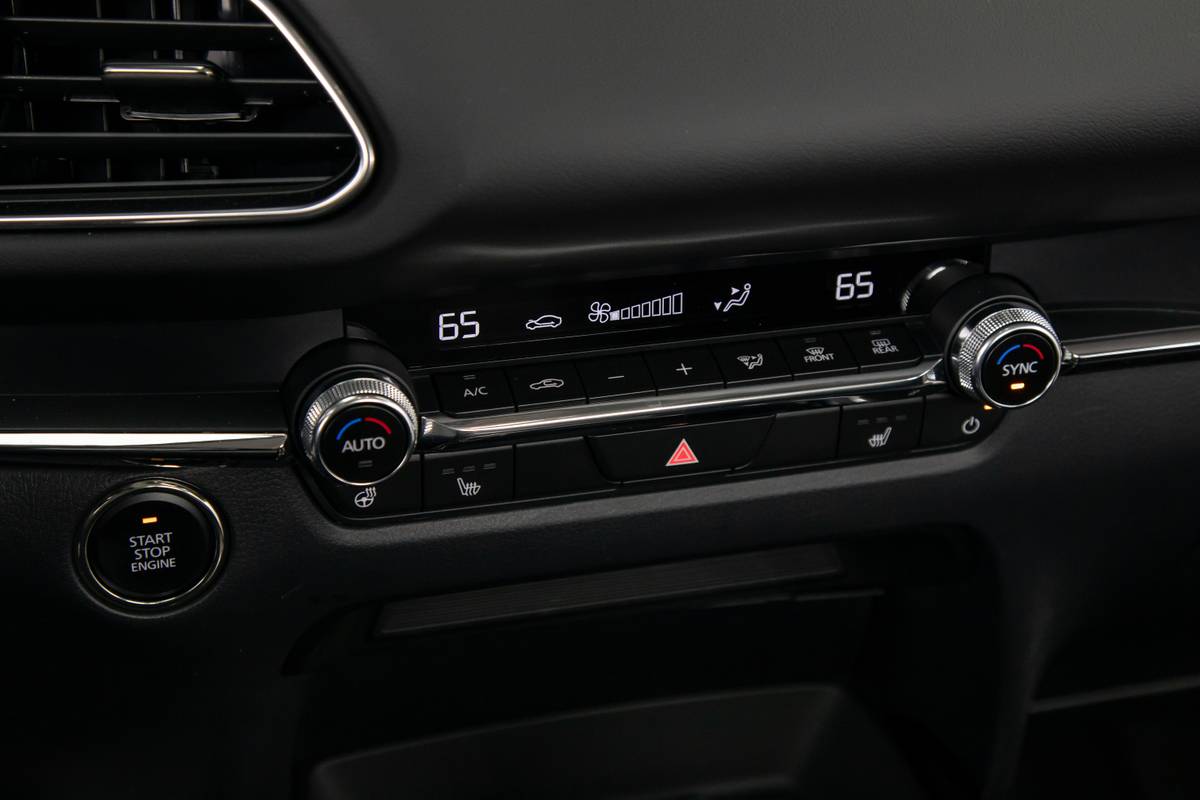

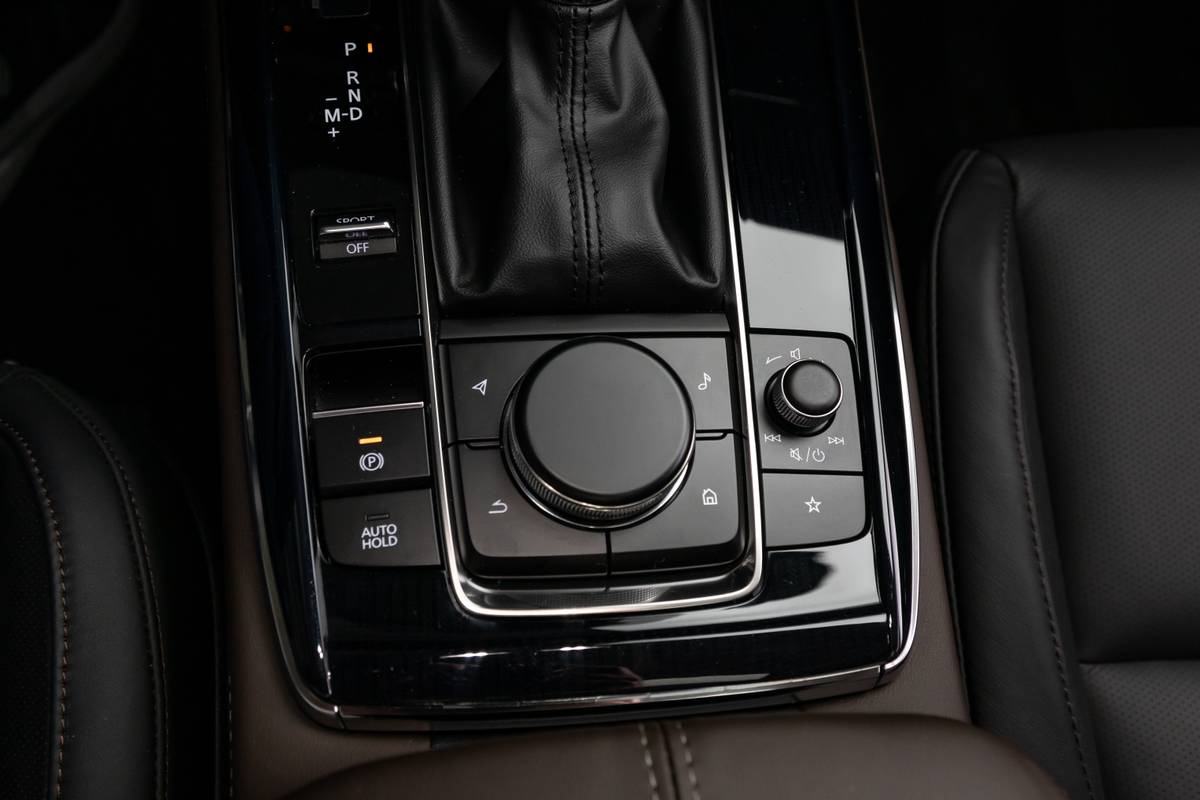
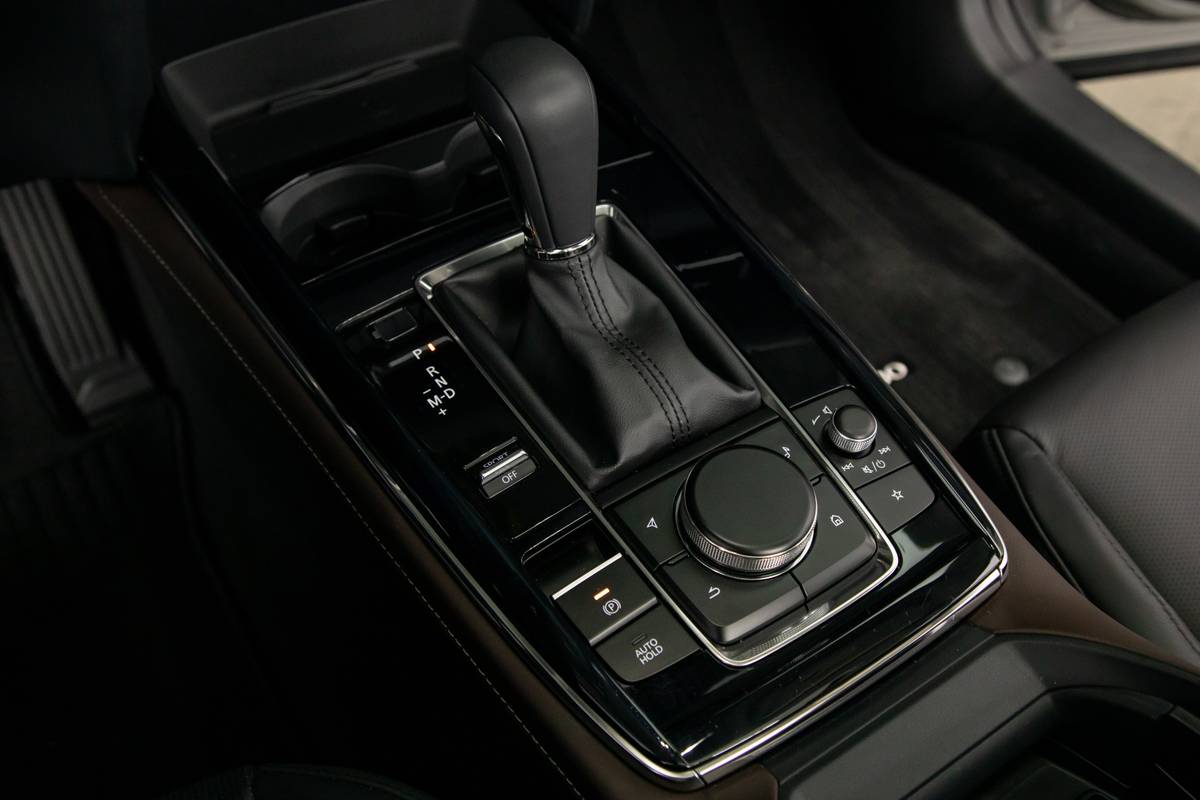
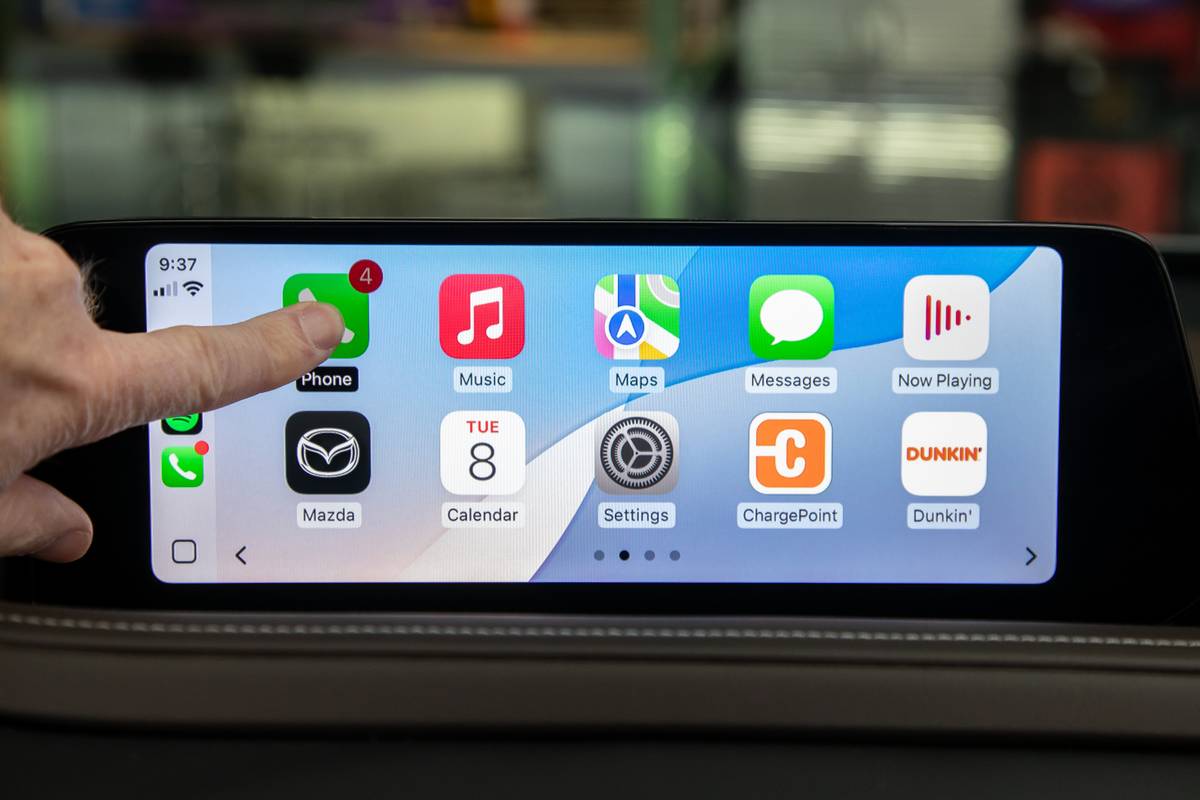




















Furthermore, Mazda’s infotainment software looks and feels outdated; it isn’t as robust or feature-rich as some competitors’ systems. And while I like the clean, easy-to-read layout of the CX-30’s combination digital-and-analog instrument panel, several rivals (including the Kona and Seltos) boast available fully digital gauge clusters with more features and configurability.
Should You Buy a Mazda CX-30?
That depends on your priorities. The 2.5 Turbo Premium Plus trim we tested starts at $38,570 (all prices include destination), and that’s essentially loaded. The only options are extra-cost paint (which adds $450 or $595, depending on the color), a $230 interior lighting kit and other accessories, including all-weather floormats. That’s well above the CX-30’s starting price of $26,615, but it still comfortably undercuts most of its European luxury rivals. The Countryman S starts around $40,000 and the Q3, X1, GLA and XC40 start in the low to mid-40s.
The fact that the CX-30 Turbo stacks up to those luxury rivals as well as it does means it’s well worth considering if you value a sporty driving experience and upscale trimmings more than passenger and cargo space in your subcompact SUV.
Cars.com’s Editorial department is your source for automotive news and reviews. In line with Cars.com’s long-standing ethics policy, editors and reviewers don’t accept gifts or free trips from automakers. The Editorial department is independent of Cars.com’s advertising, sales and sponsored content departments.

Senior Research Editor Damon Bell has more than 25 years of experience in the automotive industry, beginning as an Engineering Graphics researcher/proofreader at model-car manufacturer Revell-Monogram. From there, he moved on to various roles at Collectible Automobile magazine and Consumer Guide Automotive before joining Cars.com in August 2022. He served as president of the Midwest Automotive Media Association in 2019 and 2020.
Latest news
